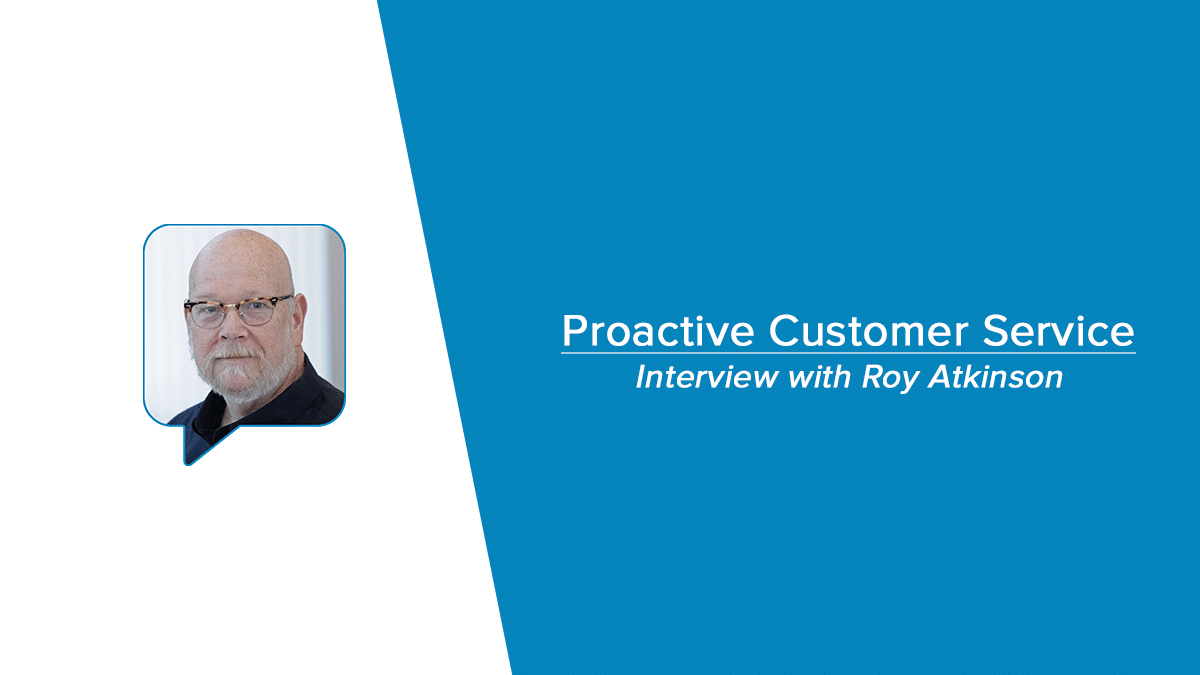
Roy Atkinson in an experienced writer and analyst, regarded as one of the top influencers in the service and support industry. A certified HDI Support Center Manager, his expert opinion is highly regarded within the community and on an international scale through his blogs, presentations, white papers, and webinars.
During the course of this interview, Roy gives us insights on the importance of good customer service, AI/automated customer service, and the right metrics to measure success.
Can you introduce yourself and tell us about your background?
My current position is a senior writer/analyst for HDI and ICMI, part of Informa Tech. In that role, I serve as in-house subject matter expert, writing content and bringing industry insights to our research. In previous positions, I have worked in retail customer service, B2B inside sales, and IT/technical support in both front line and management roles. In 2011 I earned a master’s certificate in advanced management strategy from Tulane University’s A.B. Freeman School of Business.
For you, how important is Customer Service for companies?
A company’s product (or service-as-a-product) may induce me to buy one. If that product is not well-supported by good customer service, I will be unlikely to repeat my purchase. I have walked away from repeat or potential purchases many times because of the lack of good service. Much emphasis is placed on the broader customer experience these days, but without good service to back it up, that experience will suffer.
Would you say companies should be aware of AI and Automation and the impact it can have on their business?
Absolutely. If a company doesn’t already have a strategy for how they might be able to take advantage of these emerging technologies, they should begin formulating one. They should be thinking about:
– What are some non-value-added tasks people are doing now that could be automated?
– Where can technologies be best used to augment (not replace) human effort? Think, for example, about using a well-designed chatbot to offer basic assistance to people looking for service during off-hours, or handling “overflow” calls/contacts during high-volume periods such as a problematic new product, a product recall, or a service outage.
– How to prepare staff for working alongside technological partners
– How to decide which technologies will really benefit both customers and the company
At all times, it’s good to remember that cost reduction is not a strategy, and that any technologies you adopt need to fit your company’s culture and customer base.
How valuable is it to be more proactive with support to your customers?
Proactive service is immensely valuable. I recently wrote about some of the advantages of alerting and informing your customers before they even have a chance to contact you, and perhaps even before they are affected by a particular issue. People want to know they are valued by a business and are being “looked after.” It’s not enough for businesses to tell customers they are valued; they have to feel valued because they are valued.
What do companies need to look at to improve their support center?
Looking at the support center in isolation isn’t enough. Companies need to look at the entire customer experience, with the support center as one part of that. How, for example, do the efforts of marketing, sales, and service integrate? Are they collaborative or siloed? It’s always a good policy to ask the people who do the work. Nobody knows more about your customers than your customer service people, and your sales folks, too. What are the issues they are having? What do they like and not like? What do they wish your company did better? Listen to both your employees and your customers. Remember that satisfied employees give your customers better service—and that doesn’t just mean customer service people. Shep Hyken often says, “Customer service is not a department—it’s a philosophy” and I agree. I have seen that work very well in more than one type of business.
What trends should companies be looking to adopt/consider?
Companies should be watching trends, but always seeking to get ahead of them. The companies that emerge as leaders are ones who can see the trends and go them one better; for a long time, that was what Apple did. They saw that people wanted easy access to download music, for example, and came up with multiple ways for people to do that—both software (iTunes) and hardware (iPod/iPhone). Imitating what others do will mean you’re always lagging. Get even a small step ahead and you can become a leading business.
What advice would you give companies on metrics to improve their growth?
The “right” metrics will vary with the type of business (B2B or B2C, for example), but generally companies should be gauging how easy it is to do business with them (Customer Effort Score) and how likely customers are to buy again (Net Promoter® Score—but more on this follows). Online sentiment analysis—how people talk about your company and products—can be very valuable in showing you where your weaknesses are and what market segments might find you more appealing if you did something differently from the way you do it now. Personally I don’t think Net Promoter® is as informative as it could be. If you take it to the next level and seek out why the Passives identified in NPS® are passive and what it would take to turn them into Promoters, that would be an improvement. Of course, you need to pay attention to the big things like gross and net profit margins, cost of goods and services, and so on, always looking for both strengths and weaknesses.
How would you advise enterprises to hire the right staff for their support center? And what should they look for?
Generally, I’m a fan of the “hire for attitude, train for skill” approach. This can work especially well in businesses that do a good job of knowledge management. Having good, current information at their fingertips can reduce agents’ time to proficiency substantially, so the skills come fast. The chief characteristics to look for in a potential customer support person are empathy, good listening, patience, and good general communications. If they are at home with those, they can do well in a service role.
What’s the most significant change in terms of customer experience you have observed lately?
In general, I’d say that everyone is talking about customer experience, but not so many understand what it means and why it’s important. First, you can’t leave the customer out of customer experience. Improving your website based on those new trends we talked about and on customer feedback is good. Rating your CX on a website design is not so good. Making a customer journey map—also a trend—is good, but not working actively with real customers to make sure you get it right is not so good. Some companies have really excelled at making doing business with them easy, and seem to anticipate what customers want. That’s good customer experience.
What other advise do you have for service and support leaders today?
I’d just add that nothing is true for every business. Your business has its own culture and its own customer base, and that’s where you should start. Understand what makes your company click with your best customers and find ways to make that work for more people. What is your brand promise? Why is that promise good for people? How effective are you at fulfilling it? That kind of understanding is how you grow.
To find out more about Roy’s work with HDI/ICMI, follow him on LinkedIn and Twitter to discover more expert insights.
Originally published Jun 12, 2019, updated Dec 30, 2022




